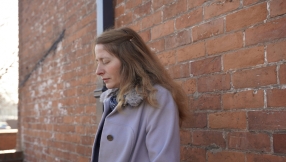Church leaders in Jerusalem appear to have won a stunning victory over Israeli politicians today, after it emerged that the country's government will freeze a controversial church lands bill and the Jerusalem municipality will postpone a recent bid to collect taxes from church-owned properties.
The backtracking by the Israeli government comes after the sensational closure of Jerusalem's Church of the Holy Sepulchre on Sunday, agreed on by the Greek Orthodox, Catholic and Armenian church leaders.
Israel's prime minister, Benjamin Netanyahu and the Jerusalem mayor Nir Barkat have established a team headed by the regional cooperation minister Tzachi Hanegbi to try to formulate a solution concerning the issue of tax collection from the churches, according to a statement by the prime minister's office reported prominently by the Israeli daily newspaper Haaretz today.
Amid what Haaretz called a 'crisis', with heartbroken pilgrims finding themselves unable to worship at the site held to be that of the death and resurrection of Jesus, Netanyahu has also asked Hanegbi to look into the matter of land sales in Jerusalem, and all pending legislation on the matter will reportedly be shelved while Hanegbi reviews the issue.
City Hall caused outrage among church leaders across denominations by its attempt to make any church properties that are not places of worship retrospectively subject to municipal taxes. The municipality claims that the three Christian denominations collectively owe some 186 million shekels ($53 million) in back taxes.
The closure of the internationally iconic church coincided with a meeting by the ministerial committee for legislation, which had been scheduled to discuss a bill, supported by Israeli settlers, allowing the state to expropriate land in Jerusalem that the Greek Orthodox and Catholic churches have sold off since 2010 to private investors. Discussion of that bill has since been postponed, according to Haaretz.
Christian Today revealed yesterday that the decision to close the holiest church in the world was instigated by the Greek Orthodox Patriarch of Jerusalem, Theophilos III, and brought to a meeting of church leaders on Saturday before being kept secret until the dramatic move on Sunday at noon in the Holy City.
The bill would have authorised the finance minister, with the approval of the constitution, law and justice committee in the Knesset, the Israeli parliament, to expropriate lands sold since the beginning of the decade in return for compensation for the companies that bought the land.
Yesterday, the Bishop of Southwark, Christopher Chessun, called on Christians around the world to show 'solidarity' over the indefinite closure of the church, expressing his disapproval bill affecting church lands and the new taxes on churches that he said are 'unfair, inappropriate and arbitrary' in an interview with Christian Today from the Holy Land.













